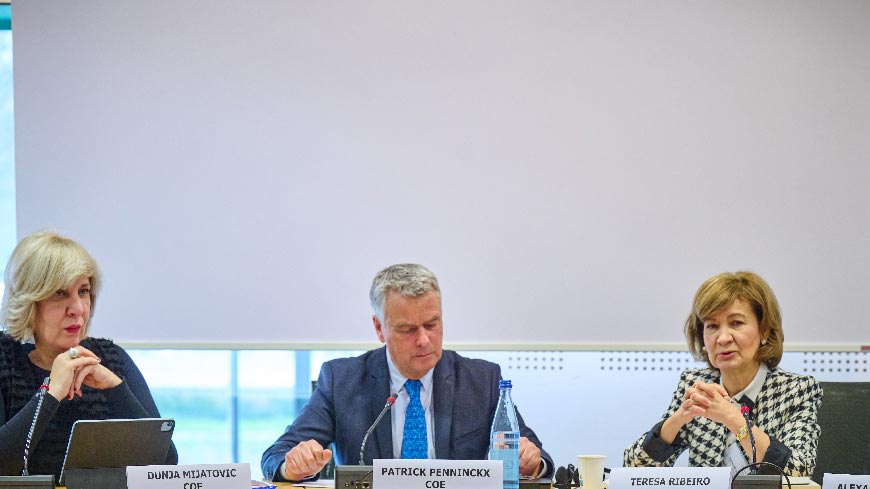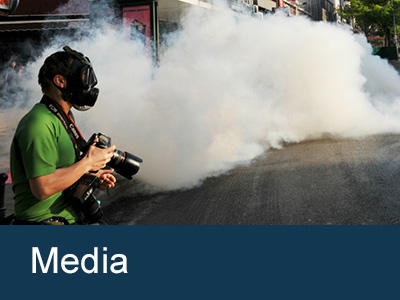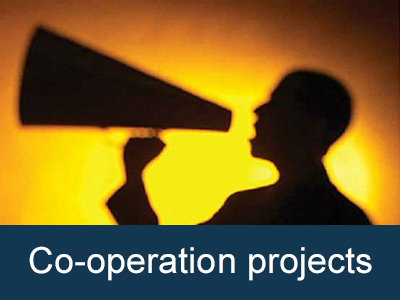The Council of Europe and the Strasbourg Group of Friends on the Safety of Journalists and Media Freedom are organising a workshop on 21-22 March 2023 in Strasbourg, with some 30 journalists, representing Belarusian media, support mechanisms and journalists’ associations in the “host” European countries, the Council of Europe partner organisations, participating in the Platform for the Protection of Journalism and Safety of Journalists.
The workshop is the first action of a list of several activities agreed in the framework of Council of Europe Contact Group on Belarus established to develop co-operation between the Council of Europe and the Belarusian democratic forces and civil society on the effective implementation of human rights and the rule of law standards.
In recent months and years, the government of Belarus has established a legal and political climate that makes it impossible for independent journalists and media to report on political and social developments in the country without fear of reprisal. As a result of the ongoing oppression, the remaining significant and politically influential independent news media have folded, while professional journalists and other media actors have either stopped reporting on the sensitive issues or fled to exile abroad, and currently based in Lithuania, Poland, other Central and Eastern European countries, Germany, and in the South Caucasus.
Many journalists, who recently fled Belarus, still struggle to find media jobs. Online media attempts to reach their audience at home from abroad despite the blocking of access to their websites by the authorities. They provide significant input into countering disinformation and propaganda of the Lukashenka regime in their country for Russian- and Belarusian-speaking audiences at home and abroad.
The same situation is true for a number of individuals (such as media educators, activists of professional associations of journalists, and media lawyers) who were fired from their jobs for their stand on the war in Ukraine and/or on political developments in Belarus. The co-existence of such journalists and the media in exile is marked by solidarity and not competition for the audiences, in particular, due to the strong elements of the civil society which have also fled the country.
For example, the activities of an independent Belarusian Association of Journalists (BAJ) were banned in 2021 by the Supreme Court of Belarus. The same year, by demand of the Ministry of Justice, a court liquidated PEN Belarus. They are now operating from abroad, in particular thanks to the support provided by the European Federation of Journalists, of which BAJ is a member. The oppression of such groups in Belarus definitely aims at the core resistance to the destruction of civil societies in the country.
During the workshop, the participants will outline the main lines of support they and their colleagues would request the Council of Europe and the European Federation of Journalists (EFJ) to provide through a particular set of activities or decisions. It will also be a venue for networking and planning joint professional work with the European journalists and support mechanisms that are also expected to attend. Since most of the journalists in exile are currently stationed in about a dozen places in Europe, it is worthwhile to discuss the idea of strengthening a network of “media freedom hubs” with the support of the EFJ, Council of Europe, IFEX, Reporters without Borders and other interested stakeholders.











